Suez Canal (Egypt)
Cruise Port schedule, live map, terminals, news
Region
Africa - Indian Ocean Islands
Local Time
2024-11-26 18:22
 59°F
59°F 15°C

 Gentle breeze
Gentle breeze3.9 m/s
 65 °F / 19 °C
65 °F / 19 °C 53 °F / 12 °C
Port Suez Canal cruise ship schedule shows timetable calendars of all arrival and departure dates by month. The port's schedule lists all ships (in links) with cruises going to or leaving from Suez Canal, Egypt. To see the full itineraries (ports of call dates and arrival / departure times) and their lowest rates – just follow the corresponding ship-link.
| Day | Ship | Arrival | Departure |
|---|---|---|---|
| 22 March, 2026 Sunday | 22:00 | 23 Mar, 16:00 | |
| 24 March, 2026 Tuesday | 04:00 | 17:00 |
Suez Canal is a man-made, sea-level waterway in Egypt, connecting Mediterranean Sea to Red Sea. After 10 years of construction, Suez Canal was officially opened on November 17, 1869. It allows passenger and cargo vessels to travel between South Asia and Europe without navigating around Africa, this way reducing the sea cruise distance by around 7,000 km (4,300 mi).
The canal extends from Port Said's northern terminus to Port Tewfik's southern terminus (at Port Suez). Canal's length is 193 km (120 mi), including its southern and northern access channels. World's other large canal waterway is Panama Canal - connecting the Atlantic Ocean with the Pacific Ocean.
In 2012, a total of 17225 ships traversed Suez Canal (47 vessels per day). The single-lane waterway features passing locations in Great Bitter Lake and Ballah Bypass. It doesn't contain any locks system as seawater is flowing through it freely. In general, north of Bitter Lakes, the canal flows south in summer and north in winter. The current changes south of the lakes, with the tide at Suez.
Suez Canal's (El Suweis/Suez Port's) locode is EGSUZ.
The Suez Canal is owned and maintained by the SCA (Suez Canal Authority) of Egypt. It may be used (under the Convention of Constantinople) "in time of war as in time of peace, by every vessel of commerce or of war, without distinction of flag".
Construction was launched in August 2014 to expand and widen Ballah Bypass for 22 miles (35 km) to speed canal's transit time. The expansion was expected to double the Suez Canal capacity from 49 to 97 vessels per day. At a cost of US$8.4 billion, the project was funded via interest-bearing investment certificates issued to Egyptian individuals and entities. On August 6, 2015 the "New Suez Canal" was officially opened. On February 24, 2016, the SCA opened the new side channel at the northern side of Suez Canal's east extension.
Suez Canal Area Development Project
On August 5, 2014, was officially launched the "Suez Canal Area Development Project" that aims to increase waterway's importance for international shipping trade, as well as to develop its three largest cities - Port Suez, Port Said and Ismailia.
The project involved building a new city, an industrial zone (SCZone / "Suez Canal Economic Zone"), fish farms, 7 tunnels (connecting Sinai with Ismailia and Port Said), improving the existing seaports (and transforming their cities into major trading centers), digging a new canal (2nd second shipping lane parallel to Suez Canal) to double the shipping capacity by allowing vessels to navigate both directions simultaneously. The second lane will decrease waiting hours from 18 to 11 hours and increase the cana;'s capacity from 49 to 97 vessels a day. Some parts of the old Suez Canal were dredged (deepened and widened). The Egyptian Armed Forces participated in the project by digging the new canal and tunnels, and also protecting the location from terrorists.
On November 8, 2017, Suez Canal Authority, SCZone and DP World (Dubai-based corporation) signed a partnership agreement to develop an integrated industrial-residential zone at Sokhna. A joint venture company was established between SCZone and DP World (51 to 49). The new Sokhna Economic Zone (SEZ) is managed by DP World. Construction works started in 2018-Q1. SEZ covers a total area of 95 km2 (37 mi2) and includes an industrial area, residential zone (sized 20 km2 / 8 mi2). Development of Port Sokhna increased its capacity and linked it to the industrial zone. Zone's facilities serve smaller-sized industries (medical, electronics, communications, construction materials, textiles, auto parts, food processing, petrochemicals), logistics, service facilities. The residential zone (capacity 0,5 million people) houses coastal villas, residential units, shopping centers, nightclubs, entertainment facilities, mosques, schools, hospitals, green spaces.
On May 5, 2019, was inaugurated Ismailia tunnel (10-lane highway under Suez Canal connecting to Port Said East Port), which significantly improved connectivity between SCCT (Suez Canal Container Terminal) and Greater Cairo's industrial zones. Ismailia tunnel has per-hour vehicle capacity 2000 (in each direction). Both tunnel entrances are equipped with 10 scanners (each) processing vehicles and trailers with max capacity 250 units per hour. Six (of the 10) lanes are for trucks and trailers only.
Port Said's Suez Canal Container Terminal is managed by APM Terminals and serves mainly transshipment cargo via boxships between Southeast Asia and Mediterranean-Europe. Terminal's current annual capacity (as of 2019) is 5,4 million TEU-containers.
On August 9, 2019, through New Suez Canal transited one of world's largest container ships - MSC Gulsun, en-route from China to Northwestern Europe. The 23756 TEU-vessel has length 400 m, width 61 m, draught 16 m and GT tonnage 232,000 tons.
For FY2019, Suez Canal Authority reported revenues of USD 5,8 billion (1,3% increase over 2018 / USD 5,7 B). The waterway was transited by 18880 ships with total NT 1,2 billion tons (5/9% increase over 2018). Increased volumes (4,9%) were also reported for cargoes - 1031 million tons (983 M tons in 2018).
New Suez Canal (2023)
The new canal has total length 72 km (45 mi). The project involves dry digging (35 km / 22 mi) and dredging (37 km / 23 mi).
- Construction works were initially scheduled to complete in 3 years, but Egypt's President ordered to be completed in 1 year.
- The projected annual revenue from the doubled Suez Canal is ~USD 12,5 billion (from the previous USD 5B).
- The new canal project's total cost is ~USD 1,7B. The project is domestic as no foreign investors were allowed.
For the period December 2020 through May 31, 2021, SCA-Suez Canal Authority reduced by 48% the transition tolls for VLCCs and ULCCs (Very-Large- and Ultra-Large Container Carriers) with DWT-deadweight tonnage 250,000+ tons. Transit fees for cruise ships were also halved if the vessels dock for min 48 hours in at least 2 Egyptian ports.
Due to the Coronavirus crisis, the Canal's revenues in FY 2019-2020 (fiscal year) decreased to USD 5,72 billion (USD 5,75 B in FY-2018-2019).
Suez Canal's expansion is currently planned for completion in July 2023. The project for adding a second lane/channel (started in July 2021) was accelerated after the boxship Ever Given (2018-built, IMO 9811000, capacity 20,000 TEUs, owned by Evergreen Marine) ran aground (due to high winds) and blocked the waterway for 6 days (March 23-29, 2021).
On September 17, 2022, SCA issued new resolutions increasing the transit tolls in 2023 by 15% for all ship types, excluding only dry-bulk carriers and cruise ships (tolls increased just 10%). Tolls' increase was due to the current oil and gas shipping market changes, with daily charter rates (increasing over 2021) +88% for crude oil tankers and +11% for LNG tankers.
- Accidents
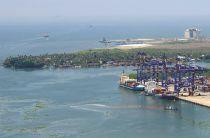
Red Sea instability threatens Cochin Port’s cruise season and revenue
The ongoing Red Sea crisis has compelled several shipping lines to cancel voyages, avoiding the increased time and costs associated with rerouting...
October 7, 2024 - Accidents

Cruise lines cancel Red Sea and Eastern Mediterranean ports amid security concerns
The Cruise Lines International Association (CLIA) has reported a significant reduction in port calls in the Red Sea and eastern Mediterranean for the...
August 15, 2024 - Accidents

Red Sea crisis disrupts Cochin Port’s cruise season: multiple cancellations expected
The ongoing Red Sea crisis has impacted the upcoming cruise season at Port Cochin (India), starting in September, following the cancellation of at...
July 29, 2024 - Accidents
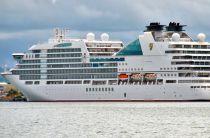
Seabourn Encore ship changes itineraries in 2025 to bypass Red Sea/Suez Canal
Seabourn has revised its spring 2025 itineraries for the Seabourn Encore ship, to bypass the Red Sea due to the ongoing conflict in the Middle East...
July 24, 2024 - Cruise Industry
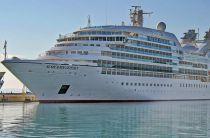
Mitsui Ocean Cruises unveils 2025 itineraries including Grand Asia and Golden Week voyages
Mitsui Ocean Cruises has unveiled 5 new itineraries for April to July 2025, including a 66-day Grand Asia Cruise and a 12-day Golden Week cruise...
July 10, 2024 - Accidents
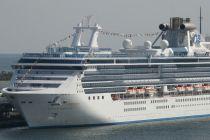
Princess Cruises alters routes for World Cruises, avoiding Middle East and Asia
Princess Cruises has adjusted the itineraries for its two 2025 World Cruises, opting to exclude visits to the Middle East and Asia due to ongoing...
April 30, 2024 - Cruise Industry
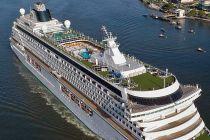
Bookings on Crystal Serenity ship's World Cruise 2026 open on March 19th
Crystal has announced the opening of bookings for the highly anticipated 2026 World Cruise aboard Crystal Serenity, with a waitlist now available...
March 5, 2024 - Accidents
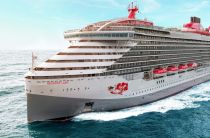
Virgin Voyages cancels Australia&New Zealand cruises 2024-2025 due to Red Sea crisis
Virgin Voyages, the travel brand company founded by billionaire Richard Branson, has made the decision to cancel its Australia and New Zealand 2024...
February 27, 2024 - Accidents
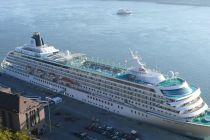
Crystal Cruises cancels voyage and reroutes ships due to Red Sea risks
Crystal Cruises has made operational adjustments in response to ongoing security concerns surrounding ships navigating the Red Sea. The cancellation...
February 17, 2024 - Accidents
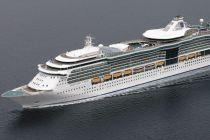
RCI-Royal Caribbean reviews routes over Red Sea and Suez Canal concerns
RCI-Royal Caribbean has confirmed that it is presently exploring alternative routes for its 9-month-long Ultimate World Cruise, citing ongoing unrest...
February 11, 2024 - show more news
